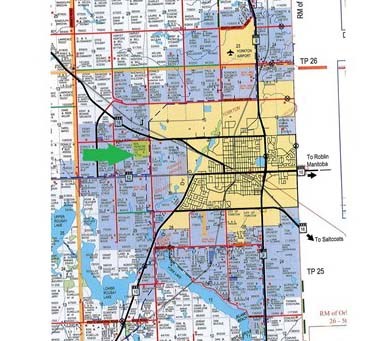A potentially explosive Rural Municipality of Orkney ratepayers meeting last week did not exactly erupt in fireworks, but it did underscore a deep-seated malaise based roughly on a rural-urban divide.
Approximately 200 people filled the main hall at the Yorkton Legion April 13 for an update from the R.M. in the first public meeting since 2013. After sitting patiently through presentations by the Saskatchewan Association of Rural Municipalities (SARM), the Saskatchewan Assessment Management Agency (SAMA) and the Agricultural Producers Association of Saskatchewan (APAS), residents got to hear from their administrator and reeve.
Clint Mauthe, the administrator laid out the financial position of the R.M. which he characterized as “real good.” Highlights included the fact that Orkney has $3.4 million in the bank and Council has committed to not raising taxes.
The most contentious issue in the R.M. is roads. Mauthe outlined all the road maintenance the R.M. completed in 2015, amounting to more than half a million dollars and told attendees he has managed to stockpile a large amount of gravel, putting the R.M. in good stead for 2016.
Reeve Dale Rhinas praised the administration and council for progress made since the election in 2012 citing a significant increase in savings, road work and gravel stockpiling as highlights.
During a special meeting last month at which the April 13 ratepayers meeting was approved, Council also passed a motion that they would not answer questions. The five councillors from Divisions 2 through 6 were good to their word and left after the official agenda was complete.
The meeting appeared to be breaking up when Bev Yaschuk got up and implored attendees to air their concerns. Yaschuk, a resident of the Pleasant Heights subdivision, pounded the pavement to make sure the meeting was well-attended by residents of the division and estimated 85 per cent of the crowd were from Division 1.
The reeve and Division 1 councillor Gordon Rhinas stuck around to answer questions.
“They answered a lot of the questions,” she said. “I’m disappointed the other guys didn’t stay and listen to our concerns. We’re always fighting against them.”
Yaschuk’s main concern is the equitable disbursement of funds.
“I’ve lived in my subdivision for 35 years and the money we get out of our subdivision isn’t doing what it’s supposed to be doing and I wanted people to be aware of where this money is going and what should be done with it and get these questions out,” she said, noting in the Council meetings she has attended, votes generally turn out 5-2.
“We have our guy who represents us in Division 1, so that’s the one vote. We have 62 per cent of the tax revenue from our division and it’s being taken over into their divisions for their roads and for whatever else they use it for.”
Dale Rhinas, handled the question as to whether Yaschuk was correct diplomatically, but acknowledged some truth to her assertion.
“I would say that the amount we are taking out of Division 1, that amount of money is not going back in,” he said.
They do have a fairly large nest egg, however.
“The reason that we’re sitting on that money is because according to the Municipal Act, we are expected in order to have good government that we should have about a year’s surplus in hand so if we have about $2 million of revenue coming in we’re expected to have about $2 million in savings,” the reeve explained.
He said Council would be looking at how to spend the other $1 million.
Dennis Dyck, a resident of the York Lake subdivision suggested part of the problem is simply communication.
“I’m 63 years old, I’ve been married for 40 years, I run a business that involves some different things and one of the things I’ve learned is that you can never make a mistake by communicating too much,” he said. “Just try communicating not enough and you get into trouble. I was hoping the other councillors would be here and understand that. I do not understand; it’s come out here a couple of times already that there’s been this opposition to meeting in this fashion.”

.png;w=120;h=80;mode=crop)


